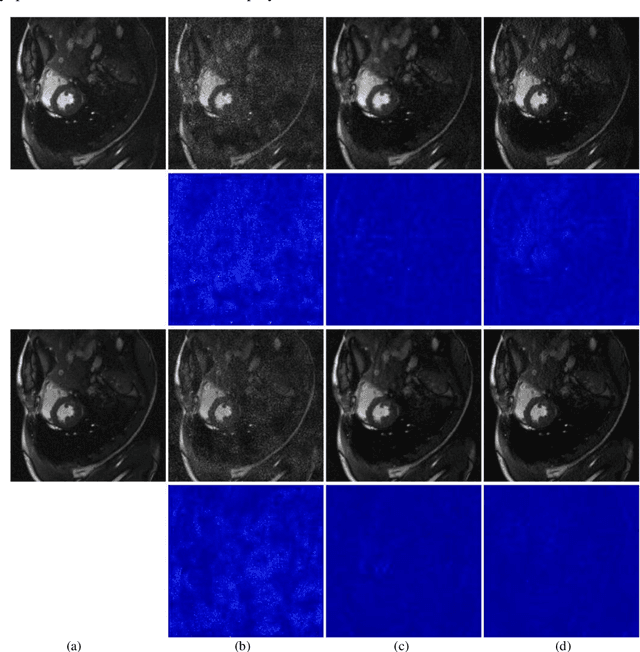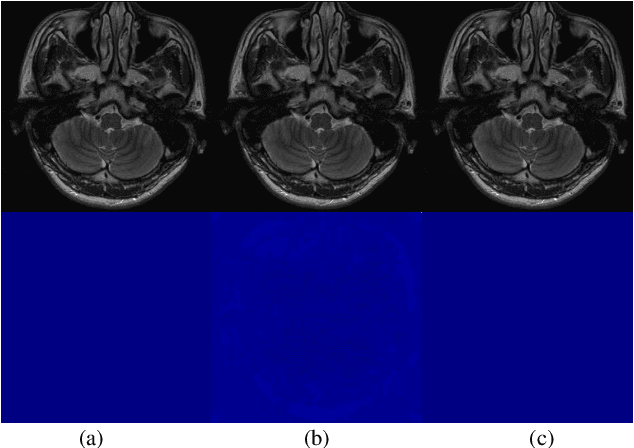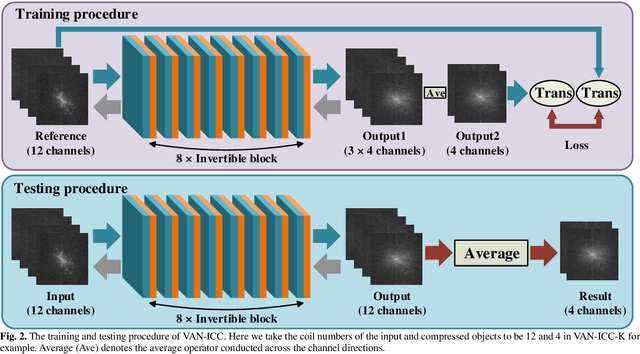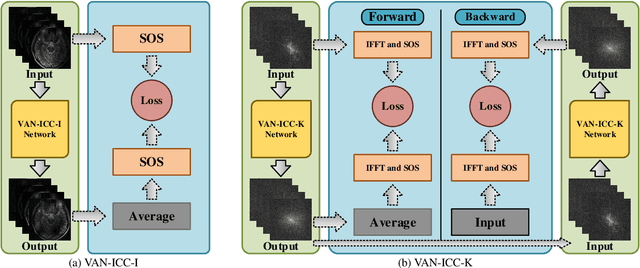Xianghao Liao
Virtual Coil Augmentation Technology for MRI via Deep Learning
Jan 19, 2022



Abstract:Magnetic resonance imaging (MRI) is a widely used medical imaging modality. However, due to the limitations in hardware, scan time, and throughput, it is often clinically challenging to obtain high-quality MR images. In this article, we propose a method of using artificial intelligence to expand the channel to achieve the effect of increasing the virtual coil. The main feature of our work is utilizing dummy variable technology to expand the channel in both the image and k-space domains. The high-dimensional information formed by channel expansion is used as the prior information of parallel imaging to improve the reconstruction effect of parallel imaging. Two features are introduced, namely variable enhancement and sum of squares (SOS) objective function. Variable argumentation provides the network with more high-dimensional prior information, which is helpful for the network to extract the deep feature in-formation of the image. The SOS objective function is employed to solve the problem that k-space data is difficult to train while speeding up the convergence speed. Ablation studies and experimental results demonstrate that our method achieves significantly higher image reconstruction performance than current state-of-the-art techniques.
Variable Augmented Network for Invertible MR Coil Compression
Jan 19, 2022



Abstract:A large number of coils are able to provide enhanced signal-to-noise ratio and improve imaging performance in parallel imaging. As the increasingly grow of coil number, however, it simultaneously aggravates the drawbacks of data storage and reconstruction speed, especially in some iterative reconstructions. Coil compression addresses these issues by generating fewer virtual coils. In this work, a novel variable augmented network for invertible coil compression (VAN-ICC) is presented, which utilizes inherent reversibility of normalizing-flow-based models, for better compression and invertible recovery. VAN-ICC trains invertible network by finding an invertible and bijective function, which can map the original image to the compression image. In the experiments, both fully-sampled images and under-sampled images were used to verify the effectiveness of the model. Extensive quantitative and qualitative evaluations demonstrated that, in comparison with SCC and GCC, VAN-ICC can carry through better compression effect with equal number of virtual coils. Additionally, its performance is not susceptible to different num-ber of virtual coils.
 Add to Chrome
Add to Chrome Add to Firefox
Add to Firefox Add to Edge
Add to Edge